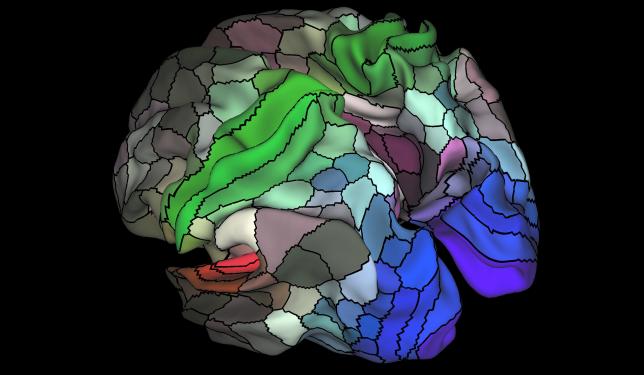
Neuroscientists acting as cartographers of the human mind have devised the most comprehensive map ever made of the cerebral cortex, the part of the brain responsible for higher cognitive functions such as abstract thought, language and memory.
 |
| A 180-area multimodal human cortical parcellation on the left and right hemisphere surfaces of the human brain is pictured in this undated handout image. Matthew F. Glasser, David C. |
Neuroscientists acting as cartographers of the human mind have devised the most comprehensive map ever made of the cerebral cortex, the part of the brain responsible for higher cognitive functions such as abstract thought, language and memory.
Using MRI images from the brains of 210 people, the researchers said on Wednesday they were able to pinpoint 180 distinct areas in the cerebral cortex, the brain's thin, wrinkly outermost layer made of so-called gray matter.
These areas were present in both the left and right hemispheres of the cerebral cortex. More than half, 97 of them, were previously unknown. The researchers nailed down the specific function of some of the areas, but said they were only scratching the surface on understanding what all of the areas did.
The map could assist in the study of brain maladies such as autism, schizophrenia, dementia and epilepsy, and shed light on the differences between the brains of people with such conditions and healthy people, the researchers said.
Neuroscientist Matthew Glasser of Washington University in St. Louis, lead author of the study published in the journal Nature, said the map also may be useful in neurosurgery, helping surgeons avoid damaging important brain areas involved in speech or movement.
"The cerebral cortex underlies most of human cognition, providing such functions as speech production and understanding, ability to use tools, ability to make decisions, et cetera," Glasser said.
"Indeed, it is responsible for the stuff that makes us human, and the cortex has expanded dramatically in humans relative to our closest living relatives, the apes."
The regions were mapped based on features such as cortical thickness and the amount of insulation, called myelin, around nerve-cell connections.
The researchers also used MRI data on cortical activity when people carry out tasks such as listening to stories, computing math problems and looking at other people making various facial expressions.
"We consider this to be the most accurate and detailed map of human cerebral cortex published to date," Washington University neuroscientist David Van Essen said.
German neurologist Korbinian Brodmann published a landmark first map of the cerebral cortex in 1909. Glasser said the new one also will not be the last word on the subject.
"Think of this as version 1.0 of the brain map. It is very likely that better data or more eyes on the problem will identify improvements, perhaps for a version 2.0 in the future," Glasser said.
(Source: Reuters)





